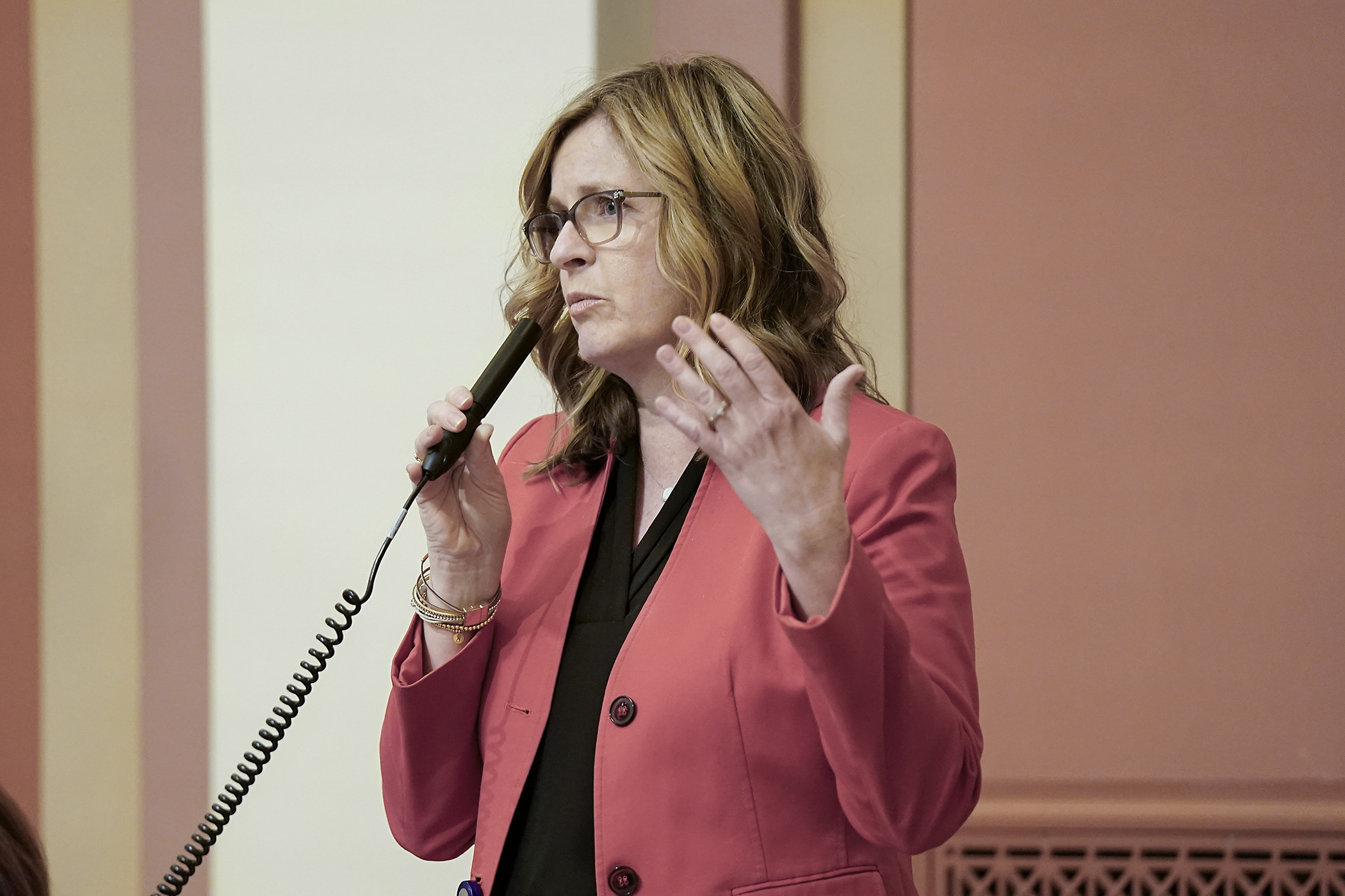Judiciary and public safety agreement clears House, heads to Senate

Rep. Paul Novotny (R-Elk River) describes the omnibus judiciary and public safety bill as “a bare bones, keep-the-lights-on public safety budget” that he wishes would do more to keep Minnesotans safe.
“This is as reasonable a bill as we could get and still do everything we can to keep the state of Minnesota safe,” said the sponsor of HF2432.
The House passed a conference committee report on the bill 131-3 Sunday. Later passed 34-33 by the Senate, the bill will go to the governor.
In its final form, the omnibus budget bill would fund Minnesota courts and public safety agencies in the 2026-27 biennium to the tune of $3.5 billion, a $107.42 million increase over base per the global target agreement.
In the public safety sphere, the agreement would appropriate $2.07 billion, a $88.26 million increase over base, to fund the Corrections and Public Safety departments, Minnesota Sentencing Guidelines Commission, Peace Officer Standards and Training Board, Private Detective Board, Ombudsperson for Corrections, and Clemency Review Commission.
In the judiciary sphere, the agreement would appropriate $1.42 billion, a $19.16 million increase over base, to fund the courts, civil legal services, Guardian ad Litem Board, Tax Court, Uniform Laws Commission, Board on Judicial Standards, Board of Public Defense, and Human Rights Department.
[MORE: View the agreement spreadsheet]
Although the bill would spend $7.2 million in the upcoming biennium on crime victim services, there is never enough money for these victims, said Rep. Kelly Moller (DFL-Shoreview). She said federal funding in this area is unstable and has already been reduced.
The bill includes a $1 million appropriation in fiscal year 2026 related to the planned closure of the Stillwater prison in 2029. Money would fund a decommissioning study including “considerations for a wide range of future uses of the site with a focus on the economic stability and development of the communities surrounding the facility.”
Rep. Josiah Hill (DFL-Stillwater) completely agrees the facility in his district needs to be closed, saying the conditions there are inhumane. But he urges the Department of Corrections to put the utmost priority on inmates and staff to ease their way through the “great interruption” this will cause to their lives and livelihoods.
Policy in the agreement
Notable policy items in the agreement include:
- expanding child pornography crimes to include computer-generated depictions indistinguishable from an actual minor;
- establishing a mandatory minimum sentence of 10 years imprisonment for a person convicted of a first-degree sex trafficking crime, and a 12-year minimum for an aggravated offense;
- increasing penalties for first-degree sex trafficking;
- adding people with dementia, a traumatic brain injury, Alzheimer’s disease, or other cognitive impairments to the scope of the missing and endangered persons program;
- requiring prisons to maintain an ample supply of opiate antagonists (Narcan) to enable staff to rapidly respond to opioid overdoses;
- decriminalizing possession of bong water;
- extending the statute of limitations for first-degree arson from five to 10 years;
- transferring the Commerce Department’s Fraud Bureau to the BCA;
- requiring correctional facilities to provide inmates with the same medications prescribed to them prior to their incarceration;
- increasing electronic access to judicial court records;
- allowing individuals convicted of abetting another person in committing felony first-degree murder to get retroactive relief if the abetting was unintentional and did not cause the murder;
- expanding the police use of mobile tracking devices that can be attached to fleeing vehicles;
- authorizing county attorneys to use administrative subpoenas in wage theft investigations;
- expanding the police use of unmanned aerial vehicles (drones) without warrants;
- expanding the crime of destruction of public utilities to include streetlights, electric vehicle charging stations, traffic signals and electronic warning signs;
- making it a crime to knowingly cause or permit a child to inhale, be exposed to, have contact with, or ingest fentanyl;
- increasing penalties for assaulting a firefighter; and
- establishing consecutive or executed sentences for a incarcerated person who commits an assault against a sheriff or sheriff’s deputy.
Related Articles
Search Session Daily
Advanced Search OptionsPriority Dailies
Legislative leaders set 2026 committee deadlines
By Lisa Kaczke Legislative leaders on Tuesday officially set the timeline for getting bills through the committee process during the upcoming 2026 session.
Here are the three deadlines for...
Legislative leaders on Tuesday officially set the timeline for getting bills through the committee process during the upcoming 2026 session.
Here are the three deadlines for...